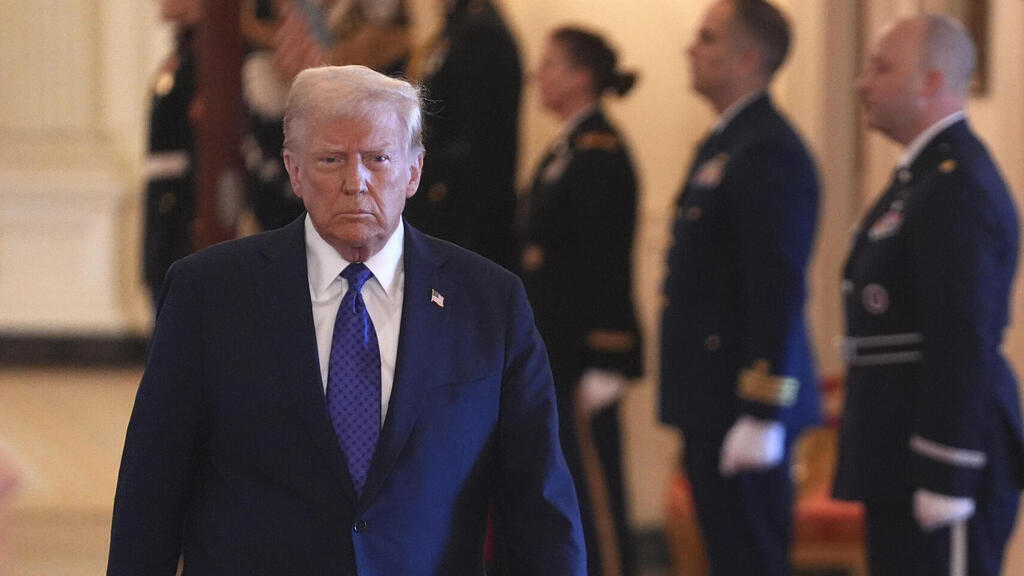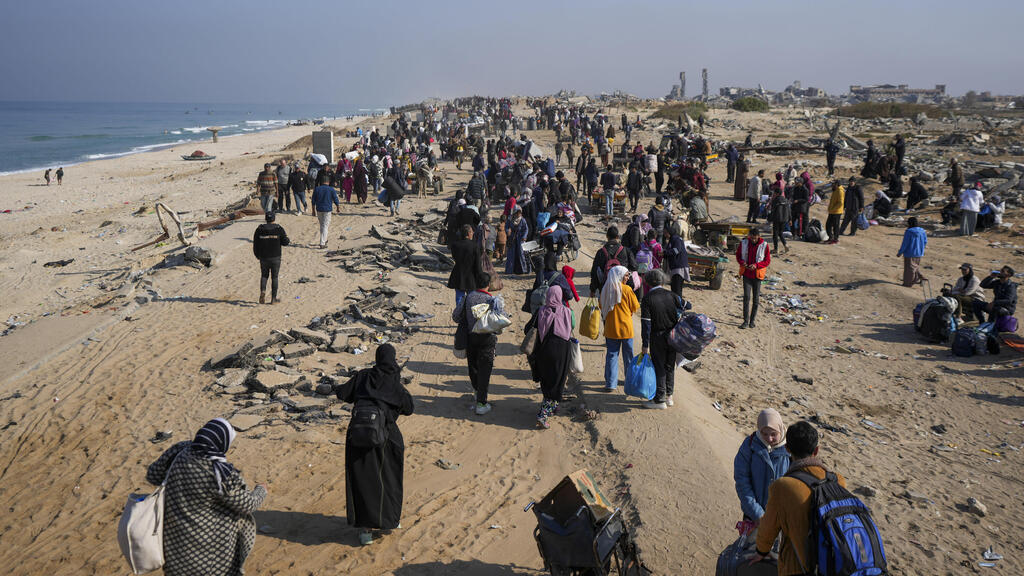Getting your Trinity Audio player ready...
The political, moral, social—and above all, economic—challenge that U.S. President Donald Trump imposed on Egypt and Jordan by suggesting (though not yet ordering) that they take in residents from Gaza is proving complex and difficult for them to digest.
In response, Jordan enlisted one of its most seasoned spokespersons, Marwan Muasher, who began his career as the kingdom’s first ambassador to Israel and now serves as foreign minister. But Muasher found himself in hot water when he suggested—on camera—that his cash-strapped nation could forgo U.S. aid, which amounts to $1.25 billion annually and is soon set to be put on "probation" by Trump's directive.
How will Jordan, with its fragile economy and high unemployment, manage without this crucial assistance? What are the chances that another Arab country would step in to provide financial support? Muasher attempted to rally backing from the Arab world, particularly Saudi Arabia, but Jordan’s ties with the kingdom are weak.
Late last week, Trump called the Jordanian royal palace. The official statement from Amman made no mention of the refugee issue, but Trump himself disclosed the content of the conversation, revealing that he had urged King Abdullah to comply with the "request." He also reminded the Jordanian leader that their alliance dates back 75 years. Still, even Trump admitted he had no clear timeline for how long displaced Gazans would remain in Jordan—most likely, it would be a prolonged stay. The frustration in Amman was palpable, with echoes of discontent reaching Tel Aviv.
It is reasonable to assume that most Palestinians granted extended refuge in Jordan will never return to Gaza. More than half of Jordan’s population is already Palestinian, and as displaced Gazans—“fresh blood” in the labor market—begin competing for jobs, they will face additional pressure from Syrian and Iraqi refugees.
Get the Ynetnews app on your smartphone: Google Play: https://bit.ly/4eJ37pE | Apple App Store: https://bit.ly/3ZL7iNv
The situation in Egypt is even more complicated. Despite the two shared border crossings in Rafah, nearly 100,000 Gazans have already entered Egypt, paying exorbitant sums for passage. Egyptian President Abdel Fattah el-Sissi—whom Trump, notably, refers to as "the general" rather than "the president"—insists he has not received any request from Washington, and that even if he had, it would have been rejected outright. Trump not only declined to correct this assertion but reiterated his request twice more, offering Egypt no compensation for "hosting" the displaced population.
Reactions from Cairo, Amman, and Gaza were strikingly uniform: No one is going anywhere.
This highlights a fundamental aspect of Trump’s vision for a "New Middle East": to him, there is no real distinction between Jordanians, Egyptians, Moroccans, or Palestinians. They all speak Arabic (albeit in different dialects), they all look the same, and they all—according to Trump—pose potential trouble. Even the Saudis, in his view, are part of this broader Arab bloc—but they are the privileged ones, led by Crown Prince Mohammed bin Salman, the key figure in the region.
It is easy to imagine that Trump’s vision for the Middle East is being scrutinized and debated in Saudi palaces. There is no pressure on bin Salman regarding Israel—there is already an understanding, an agreement, and a plan. Saudi Arabia has firmly rejected any notion of resettling Palestinians in its deserts.
The crown prince does not invite himself to Washington; instead, he pushes for Trump to relive his first-term adventure and make Riyadh his first overseas stop once again. Trump is considering it. Across the Arab world, leaders are watching the White House’s moves with apprehension.
Bin Salman is not about to pour cash into Egypt or Jordan. Instead, he aligns himself with the "New Middle East" and shows interest in figures like Abu Mohammed al-Jolani, the Syrian leader who expelled Iranian forces from his territory. He is also keeping a close eye on Lebanon’s newly elected president, Joseph Aoun. When the time is right, bin Salman will integrate into the secret settlement plan being formulated in Washington.
This is why Israeli Prime Minister Benjamin Netanyahu was the first guest at the White House—Trump intends to embrace him tightly and exert pressure.
American envoys, both public and behind the scenes, are not pressing Saudi Arabia for a formal agreement with Israel—not yet. First, the Palestinian issue must be addressed. According to a key Saudi source, Trump is determined not to let Egypt and Jordan off the hook. His vision includes the relocation of 1.5 million displaced Gazans.
For Trump, this is a business deal. The Middle East’s small-scale, emotional politics do not concern him.



